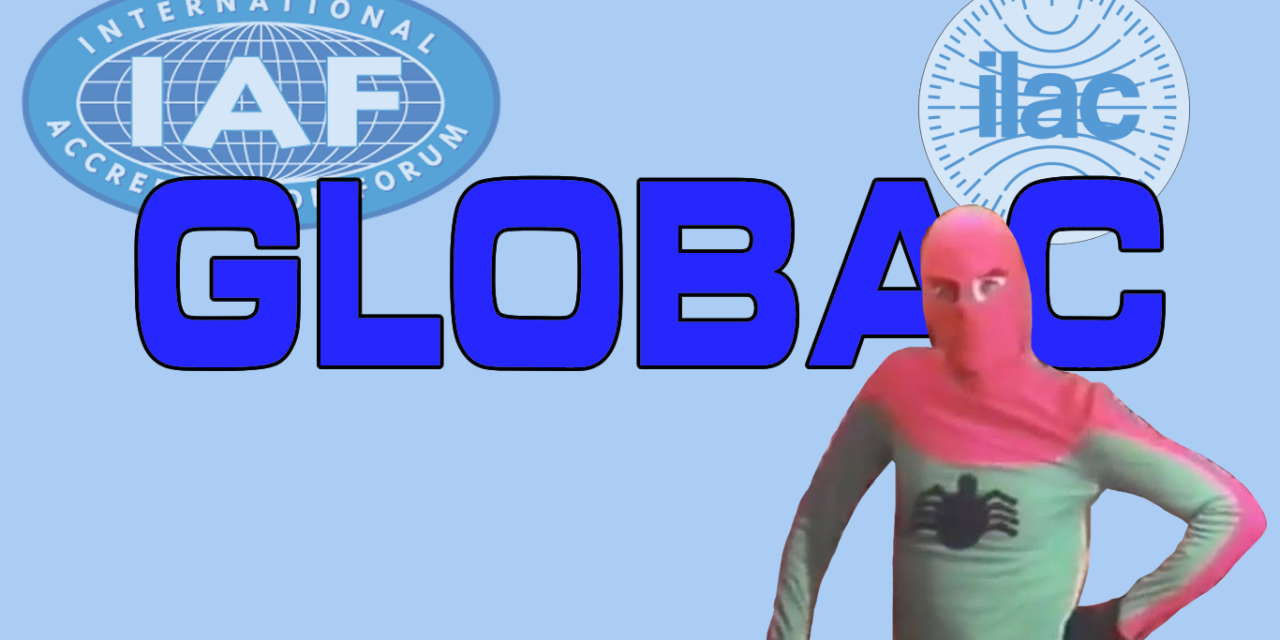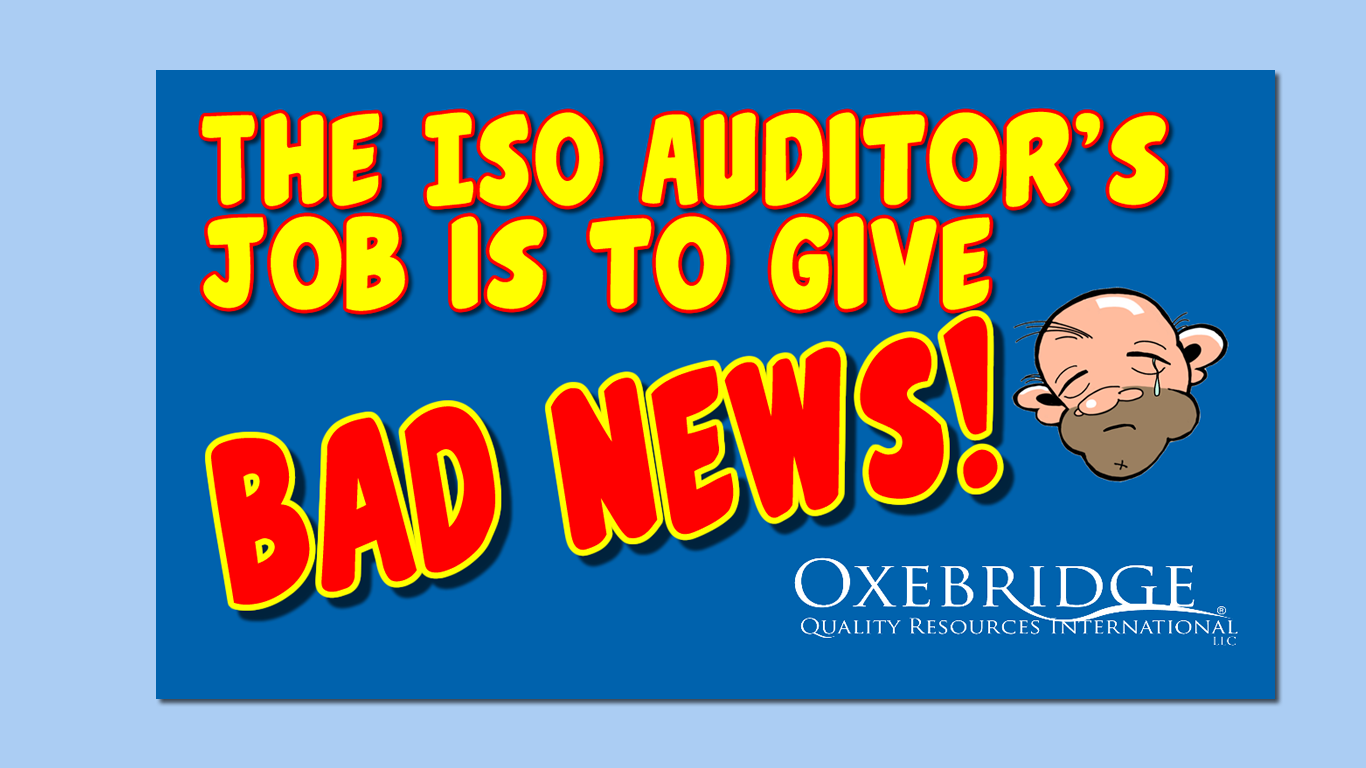Well, here’s a surprise twist that everyone should have seen coming. As you may know, the IAF and its laboratory accreditation sister organization ILAC are set to merge into a single organization called “GLOBAC.” Much of this was prompted by the IAF’s need to get out from under US law, which it cannot be bothered to comply with; IAF realizes the clock is likely ticking on its impunity in the country. Talks were underway for years for IAF to merge with ILAC, which is registered in Belgium, but then they decided to shift the entire thing to New Zealand, with GLOBAC set to launch there this year.
New Zealand has become a popular place for shady organizations as the government there thinks turning the country into the antipode version of the Cayman Islands is a winning strategy.
Germany Takes Its Ball and Goes Home
Germany, however, has announced it won’t be joining the party because of all the baked-in illegalities. The German Accreditation Council, a government office that oversees, among other things, the German accreditation body DAkkS, has announced that Germany cannot join GLOBAC without breaking the law. This is because, under German and EU law, all accreditation bodies must operate as not-for-profit charity organizations and are legally denied the ability to operate under a for-profit model. The criminals behind GLOBAC, though, had other ideas and… well, let’s let the Germans explain it:
GLOBAC is not a charitable organisation. Section 4.1 of GLOBAC’s Articles of Association states: “[GLOBAC] is not and does not intend to be registered as a charitable entity under the New Zealand Charities Act 2005.”
My reading is that GLOBAC would have wanted to register as a charity, but couldn’t because their business model is based on the Mafia. Even the New Zealanders saw through that. Germany continues:
Therefore, an accession of the German Accreditation Body (DAkkS) as a member of GLOBAC would violate Art. 4 (7) of Regulation (EC) 765/2008, because a national accreditation body cannot circumvent the prohibition in Art. 4 (7) of Regulation (EC) 765/2008 by realising the prohibited profit orientation through participation in a for-profit organisation.
If you thought that was bad enough, remember that Germans drink beer out of those giant steins with huge copper handles, so when they say, “hold my beer,” they mean it.
Germany proceeds to point out that GLOBAC is essentially an illegal cartel. Accreditation bodies in the EU receive special status preventing them from being held accountable to anti-monopoly laws, but only if they meet certain conditions. One of those is that they not be run as for-profit enterprises, as indicated above. But they also can’t join for-profit cabals or cartels, like GLOBAC. Or, to put this in English-translated bureaucratic German:
In EU/EEA, EU accreditation bodies and the accreditation activities are directly and specifically linked to the exercise of official authority within the meaning of Art. 51 TFEU and are only exempt from the ban on cartels for this reason. EU accreditation bodies must therefore carry out all accreditation activities and contracts (including in third countries) as part of their public task. Other activities are alien to a public authority and could fall under the ban on cartels. This was decided by the European Court of Justice in the case C-142/20, Analisi G. Caracciolo Srl v Perry Johnson Laboratory Accreditation Inc, ECLI:EU:C:2021:368.
I reported on the Perry Johnson case in Italy here.
This fires a warning shot over the bows of every EU country, essentially providing them a blueprint on how to (a) get out of this GLOBAC scam nightmare and (b) comply with actual law. That is not about to stop the corrupt ABs like Accredia or Akkreditierung Austria, but it might keep out more sober sorts like Spain and France. Yes, in comparison with Italy and Austria, Spain and France are actually “sober.”
Germany: “GLOBAC Jeopardizes Impartiality”
The Germans aren’t done. They then tore apart GLOBAC’s entire raison dêtre, or however you say it in German, by essentially saying GLOBAC will fail at accomplishing anything it sets out to do. Germany pointed out that rather than ensuring impartiality and trust in accreditation, “GLOBAC jeopardises the impartiality of accreditation.” Yes, they went there:
GLOBAC is not an organisation of accreditation bodies that organises mutual recognition agreements between accreditation bodies independently of the interests of the conformity assessment bodies. On the contrary, conformity assessment bodies can also become voting members of GLOBAC, resulting in a prohibited mixing of interests that violates Article 4 (8) and Article 8 (1) of Regulation (EC) 765/2008.
It cannot be tolerated that public authorities of the EU (accreditation bodies) should be subject to the binding rules of a private organisation when this organisation itself grants the monitored conformity assessment bodies the opportunity to significantly influence the regulations and procedures of their own monitoring authority (accreditation body) (Art. 8 (1) of Regulation (EC) 765/2008).
Germany pointed out something I hadn’t even known. Apparently, in their greed, GLOBAC opened up membership to the certification bodies (CBs) that its primary members, the ABs, are supposed to be overseeing. This absolutely lets the inmates run the asylum. If BSI and Intertek and Bureau Veritas are allowed not only membership, but voting rights, in GLOBAC, they will work to undermine any oversight their corresponding ABs would try to impose. So, the CBs will be running the show, not the accreditation bodies.
We’ve seen them do this already in ISO/CASCO, where the CBs like BSI influence ISO to dilute the rules in ISO 17021-1, the standard that governs them. There’s no reason to believe that the CBs — organizations that have some of the worst reputations in any industry, anywhere — will suddenly start behaving when granted a position of complete power in GLOBAC.
Which, by my reading, makes GLOBAC even more illegal. It will be stating in public documents that it intends to strengthen the recognition and validity of accreditation, but its actual practices will be doing the opposite, and gutting them.
Germany then reminded its fellows in the EU that GLOBAC cannot have any authority over an EU accreditation body anyway:
Furthermore, it is not acceptable that a private foreign organisation imposes binding requirements on conformity assessment bodies based in an EU Member State without any legal basis in Union or national law, thereby interfering with the freedom to pursue an occupation or private property rights (Art. 15,16, 17 EU-CFR; OJ 2000/C 364/01) and increasing their costs. This is particularly problematic if the rules of this private organisation are to be enforced by a national authority and the national authority could only partially fulfil the requirements of a legal administrative procedure (Art. 41,42 EU-CFR).
A Fake Certificate Mill Trademarked “GLOBAC”
The Germans ended their shredding of GLOBAC with a reminder of just how badly managed the entire thing has been and what absolute knob-head noobies the GLOBAC team is. They pointed out that the dummies could not even be bothered to have trademarked the name “GLOBAC,” thus ensuring all sorts of legal shenanigans and problems. Germany says that, as a result, “GLOBAC currently has no legal or de facto market penetration in relation to third countries at the level of WTO member states” and that without trademark protection, “GLOBAC cannot overcome any trade barriers.”
[GLOBAC has] neglected to carry out a legal feasibility check with the most important WTO member states and free trade areas.
I checked. Over at the US Patent and Trademark Office (PTO), sure enough, the name “GLOBAC” has been trademarked by a woman named Sevilay Sarıaydın of Turkey. She apparently works for a company that popped up recently named “GLOBAC” and which just happens to offer both certification and accreditation for laboratories and the like. They even registered the website www.globac.net, and Whois reports this was done in August of last year. Keep in mind: this is after the IAF and ILAC merger had already been announced in 2023. Here’s the Whois info:
So, no, nobody at either IAF or ILAC ever bothered to trademark the name, obtain a URL, or do any other super-basic things one does before starting a business. Heck, they only launched their “rebranding tender“ in June of last year.
(BTW, “globac.com” is still available if anyone wants to cybersquat it. That’s probably illegal, so I won’t be doing it, but maybe you Turks in the audience are up for some fun.)
Enter Turkish Spiderman
Oh, but it gets worse. The Turkish GLOBAC is a full-on fake certificate mill. They claim accreditation by the fake body “EAF” (Enterprise Accreditation Foundation) which doesn’t even exist. Then also name-check the UAF — the scammer accreditation body currently being tracked by Oxebridge for tax fraud — but it’s not clear if that’s a typo, or if they actually got Parveen Sadana to issue them one of his fake accreditations.
Turkish GLOBAC also claims to provide “documentation” to its clients — a clear sign of it being a fake mill — and then even offers AS9100 certification, which is so illegal I can’t even begin to describe it. GLOBAC is not anywhere near recognized by the IAQG, so it’s full-on fraud.
So, yes, the IAF and ILAC got pwned by Turkish Spiderman. That’s how incompetent and amateurish Victor Gandy, Emanuele Riva, and Etty Feller are.
Will the rest of Europe follow? Germany has certainly built out the blueprint for them to do so, and made the legal case pretty damn compelling. Now, all eyes are on France and Spain. The UK can’t be counted on anything, and UKAS just goes where the money is, so expect them to suddenly invoke “Brexit” and claim none of this applies to them, even though it totally does.
It’s good to see Germany standing up for the rule of law and accreditation principles, even though DAkkS has a less-than-good record on the subject here at Oxebridge. (See here, here, here.)
I’d urge my American accreditation body pals to refuse entry into GLOBAC, too, but I am sure they can’t be bothered to do their due diligence, either. They are just chasing the money.
Christopher Paris is the founder and VP Operations of Oxebridge. He has over 35 years’ experience implementing ISO 9001 and AS9100 systems, and helps establish certification and accreditation bodies with the ISO 17000 series. He is a vocal advocate for the development and use of standards from the point of view of actual users. He is the writer and artist of THE AUDITOR comic strip, and is currently writing the DR. CUBA pulp novel series. Visit www.drcuba.world









